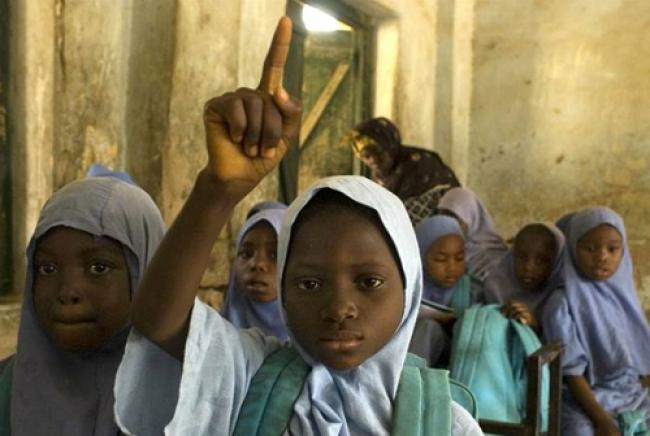“We are deeply concerned about the outrageous claims made in a video believed to be by the leader of Boko Haram in Nigeriaon Monday,” Rupert Colville, the spokesman for the Office of the High Commissioner for Human Rights (OHCHR), said in a briefing in Geneva.
“[We] warn the perpetrators that there is an absolute prohibition against slavery and sexual slavery in international law,” the OHCHR spokesperson warned. “These can, under certain circumstances, constitute crimes against humanity.”
He added that there was no statute of limitations for such grave international crimes, including slavery and sexual slavery, “Anyone responsible could be arrested and prosecuted at any time in the future”.
These strong warnings come as the UN Children’s Fund (UNICEF) reports the abduction on Tuesday of eight more girls in Nigeria.
“This is an outrage and a worsening nightmare for the girls themselves and for the families of the more than 200 girls who have been stolen from their communities in the last several weeks,” said the agency in a news release, which deems it “especially abhorrent” that the girls were allegedly abducted to prevent them from attending school.
“UNICEF calls on the abductors to immediately return these girls unharmed to their communities, and we implore all those with influence on the perpetrators to do everything they can to secure the safe return of the girls – and to bring their abductors to justice,” said the statement.
High Commissioner Navi Pillay has condemned the violent abduction of the girls, believed to be between 15 and 18 years old, seized at gunpoint on April 14 after Boko Haram insurgents stormed a school in the north-eastern town of Chibok.
“The girls must be immediately returned, unharmed, to their families,” her spokesperson said.
As for what could be done if Boko Haram does not respect Pillay’s demands, Colville said the primary responsibility lay with the Nigerian State, which was “large and strong”, and he stressed that it was “particularly important to ensure greater cooperation among various authorities for the greater good, which was the release of the girls”.
OHCHR has also said that the authorities need to undertake effective measures to protect their people within the remits of international law. Failure to do so would be a violation of human rights.
During a visit to Nigeria earlier this year, Pillay had said Boko Haram had grown “increasingly monstrous” in its actions. She said that the group is now targeting some people because of their religion and occupation – “and in this case, simply because the girls were enrolled in school”.
The UN Children’s Fund (UNICEF), whose spokesperson Christophe Boulierac was also participating in the briefing, said the agency had underscored in earlier statements that such acts of violence were “absolutely unacceptable, and represented a crime against international law”.
The UN World Food Programme’s (WFP) Elisabeth Byrs added that the right to education was a fundamental one and that “young girls had to be allowed to attend school”, which WFP encourages.
Last year, the Prosecutor of the International Criminal Court (ICC) reported that there is reason to believe that Boko Haram had committed crimes against humanity, referring to reports of murder and persecution.
Since June 2013, attacks in northeastern Nigeria have resulted in school closures affecting thousands of students, many of whom have had no access to education in months. Photo: UNICEF/NYHQ2007-0515/Nesbitt
